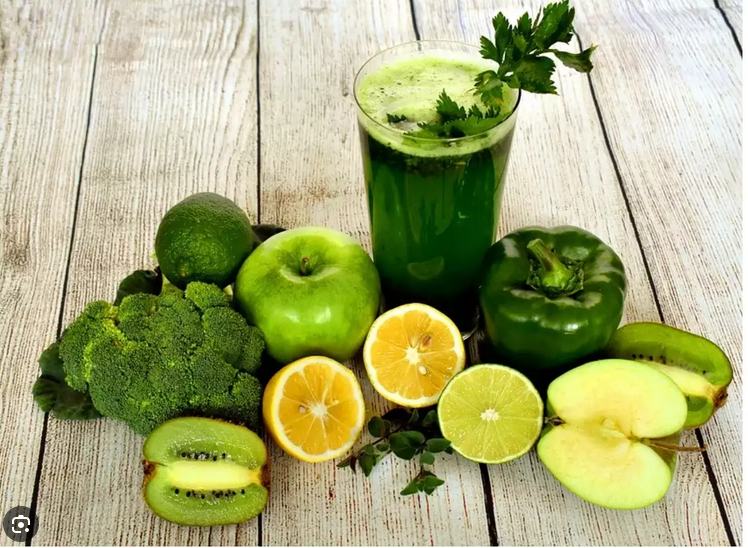
Most organ meat, such as liver provide selenium. PHOTO/COURTESY
Selenium, a trace element often overlooked, is vital in maintaining one’s overall health and well-being. This essential mineral, found in small amounts in the earth's crust, is a powerful antioxidant that helps protect our cells from damage, supports immune function, and is crucial for properly functioning the thyroid gland.
Despite its importance, many of us are not getting enough selenium in our diets, which can lead to a range of health problems. This article will explore the importance of selenium in the body, its benefits, and how to ensure adequate intake to maintain optimal health.
Lydia Aisu Pedun, a nutritionist, says selenium is a trace but essential mineral that is naturally present in many foods and sometimes, added to others through fortification.
“Although the body needs it for metabolism and thyroid function in small amounts, it cannot manufacture it on its own. One has to eat certain foods to get it,” she says.
Sources
Since selenium in foods is protein-bound, foods that are high in protein tend to be the best sources of selenium. Pedun says animal products, organ meats such as liver, seafood, and Brazil nuts are the richest food sources of selenium. Other sources include beans, chia seeds, mushrooms, kale, fish, sunflower seeds, cereals other grains, and dairy products.
According to the National Institutes of Health, the amount of selenium in a given type of plant-based food depends on the amount and form of selenium in the soil and several other factors These include soil pH and amount of organic matter in the soil. As a result, selenium concentrations in plant-based foods vary widely by geographic location.

Just one Brazilian nut contains 96micrograms of selenium, almost twice of your daily requirement. PHOTO/COURTESY/HEALTHLINE.COM
The selenium content of soil affects the amount of selenium in the plants that animals eat. However, this does not substantially affect the amount of selenium in animal products since animals maintain predictable tissue concentrations of selenium through homeostatic mechanisms. Furthermore, formulated livestock feeds generally contain selenium at consistent levels.
Vulnerable groups
Several groups of people are prone to selenium deficiencies. The deficiency can occur in patients with severely compromised intestinal function, those undergoing total feeding intravenously, those who have had gastrointestinal bypass surgery, and persons of advanced age.
Selenium concentrations are often significantly lower in patients undergoing long-term hemodialysis than in healthy individuals partly because hemodialysis removes some selenium from the blood. People who feed on ultra-refined foods, pregnant women, and those undergoing chemotherapy also risk selenium deficiency.
People with a compromised immune system such as those living with HIV often have low selenium concentrations, possibly due to malabsorption or inadequate selenium intake. People who follow a vegetarian or vegan dietary pattern may have lower selenium intake than others.
Research indicates that men have slightly higher serum selenium concentrations than women. Selenium status is lower in people who smoke, possibly because smoking increases oxidative stress.
According to the Proceedings of the Nutrition Society, selenium deficiency risks are also linked to socio-economic status including access to animal source foods.
Why you need selenium
Selenium is a powerful antioxidant that fights oxidative stress and helps defend your body from DNA damage, and chronic conditions such as inflammation, heart disease and cancer.
“The body needs it for the proper functioning of the endocrine system and the thyroid gland particularly. It protects the thyroid against oxidative damage and plays an essential role in the production of thyroid hormones,” Pedun says.
A diet rich in selenium may help keep your heart healthy, as low selenium levels have been linked to an increased risk of heart disease, says Amanda Twebaze, a nutritionist at Human Mechanic Clinic.
“The mineral plays an important role in the health of your immune system. This antioxidant helps lower oxidative stress in your body, which reduces inflammation and enhances immunity,” she says.
Selenium is also said to be essential for reproductive health in both men and women. The mineral is needed for proper sperm morphology and motility. A deficiency hampers the ability to produce testosterone and sperm.
According to ScienceDirect.com, numerous reports implicate selenium deficiency in several reproductive and obstetric complications, including male and female infertility, miscarriage, preeclampsia, small-for-gestational-age infants, preterm labour, gestational diabetes, as well as problems in early childhood.
Epidemiological studies have suggested an inverse association between selenium status and the risk of colorectal, prostate, lung, bladder, skin, oesophagal, and gastric cancers. In addition, a few early clinical trials found that selenium supplements reduced the risk of some forms of cancer.
The balance
Selenium balance is maintained primarily by urinary excretion and, in cases of higher selenium intake, through the lungs and faeces, Twebaze says.
“Like iodine, selenium concentration is higher in the thyroid gland than in any other organ in the body. The mineral is important in the synthesis of thyroid hormone and metabolism. Some studies have found associations between low selenium status and increased risk of thyroid disease,” Twebaze says.
One of the common indicators of excess intake of selenium is a garlic odour in the breath and a metallic taste in the mouth. Others include hair loss and nail brittleness or loss, skin rash, nausea, diarrhoea, fatigue, irritability, and nervous system abnormalities.
Brazil nuts contain very high amounts of selenium (68–91 mcg per nut) and could cause selenium toxicity if consumed regularly. Acute selenium toxicity can cause severe gastrointestinal and neurological symptoms; acute respiratory distress syndrome; myocardial infarction; hair loss; muscle tenderness; tremors; lightheadedness; facial flushing; kidney failure; cardiac failure; and, in rare cases, death.
Twebaze recommends consuming a variety of vegetables, fruits, whole grains, fat-free and low-fat milk, yoghurt, and cheese, and protein foods such as beans, fish, lean meats, poultry, and eggs. Some ready-to-eat breakfast cereals are fortified with selenium.
Limits on alcoholic beverages and foods and beverages higher in added sugars, saturated fat, and sodium can improve the absorption of selenium.
How to preserve the mineral
Lydia Aisu Pedun, a nutritionist, says it is important to consume selenium-rich foods in moderation, as excessive intake can be harmful. A balanced diet with a variety of whole foods can provide adequate selenium for optimal health.

Kale has twice the selenium content of spinach. PHOTO/COURTESY
To cook selenium-rich foods without hurting their nutrient content, Amanda Twebaze, a nutritionist, recommends following the general food preparation practices.
The rule is to wash and then cut, especially for vegetables to prevent leaching out of the mineral since it is water soluble. Also, when it comes to animal products such as meat, it is important not to wash the meat too much since minerals, including selenium, will leach out into the water.
Different cooking methods could help to preserve the mineral according to Twebaze. These can include steaming for fish, seafood, and vegetables, grilling can help to avoid excessive heat and water loss. Sautéing mushrooms and vegetables can preserve selenium.
“You can poach eggs and fish to minimise water loss and selenium destruction. Baking whole grains and legumes retains selenium. When cooking, avoid overcooking, use minimal water, and retain cooking liquid as a base for soups or sauces to retain the selenium mineral,” she says.
She advises that you cook selenium-rich foods with vitamin C-rich foods (such as citrus or bell peppers) to enhance selenium absorption.



